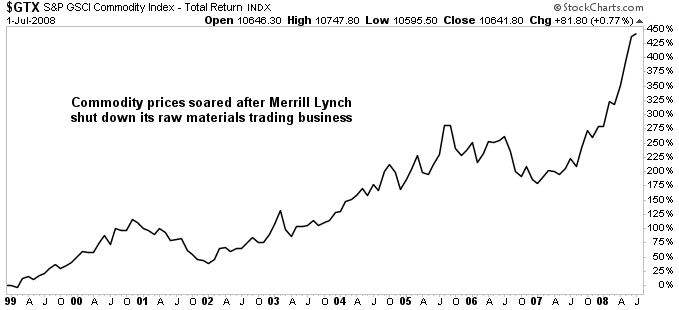The Last Time This Occurred, These Dividend Stocks Posted Triple-Digit Gains

These Dividend Stocks Often Soar Whenever This Happens
Recently, an event took place that could trigger outsized returns for a certain group of dividend stocks.
In October, Bloomberg reported that commodity hedge fund Blenheim Capital Management will shut its doors. Blenheim’s CEO and chief investment officer Willem Kooyker plans to call it quits after a 50-year money management career trading oil, metals, and agricultural commodities. (Source: “A Commodities Hedge Fund Titan Is Quitting After 50 Years,” Bloomberg, October 18, 2019.)
The news marks a disappointing end for the hedge fund. At one point, Blenheim stood as one of the world’s largest hedge funds, with over $9.0 billion in assets under management in 2011. But after years of falling commodity prices, investors have grown tired of lackluster returns. By 2016, the fund had less than $1.5 billion in capital under management.
Here’s the thing: investors should take notice when institutional funds start throwing in the towel. These events, historically speaking, often represent an enormously positive signal for investors.
Mom and pop investors always chase “what’s working now.” Investment firms, however, won’t exit a business that has been their bread and butter unless conditions turn as bad as they can get. So when these folks turn their backs on an asset class, it means the market segment must be truly hated.
In the late 1990s, for instance, Merrill Lynch shuttered its commodity business after years of underperformance. That move almost perfectly coincided with the bottom in commodity prices. Between 1999 and 2008, the S&P GSCI index, which tracks the prices of a basket of commodities, soared from a starting value of 2,000 to a peak near 11,000.
That triggered outstanding returns in companies that dug these materials out of the ground.
Commodity businesses like PotashCorp—now known as Nutrien Ltd—(NYSE:NTR), Royal Gold, Inc (NASDAQ:RGLD), and BHP Group Ltd (NYSE:BHP) all boosted their payouts. Oil stocks, such as Chevron Corporation (NYSE:CVX) and Exxon Mobil Corporation (NYSE:XOM), became cash machines.
And that’s not the only example.
Van Wagoner’s “Emerging Markets” mutual fund signaled the bottom of the dotcom bust after the group abandoned its Internet-focused strategy for a broader investment mix in September 2002. The Vanguard Group, Inc. shut down its $2.3-billion “Precious Metals and Mining Fund” in July 2018, right at the beginning of a big bull market for gold miners.

Chart courtesy of StockCharts.com
So what should investors do?
I have no business predicting commodity prices. I especially don’t want to try calling a bottom in a 10-year raw materials bear market.
But sentiment here has turned beyond dour. The S&P GSCI index recently hit its lowest level relative to the Dow Jones Industrial Average since 1998.
That means you can pick up some outright cheap dividend stocks in the materials and energy sectors. In my paid newsletters to subscribers, I have started nibbling at some of the highest-quality names in these industries. So even if commodity prices don’t rally, investors can lock in a reliable stream of income.
But if history is any guide, the closedown of a big hedge fund like Blenheim signals that a bottom could be close at hand.











